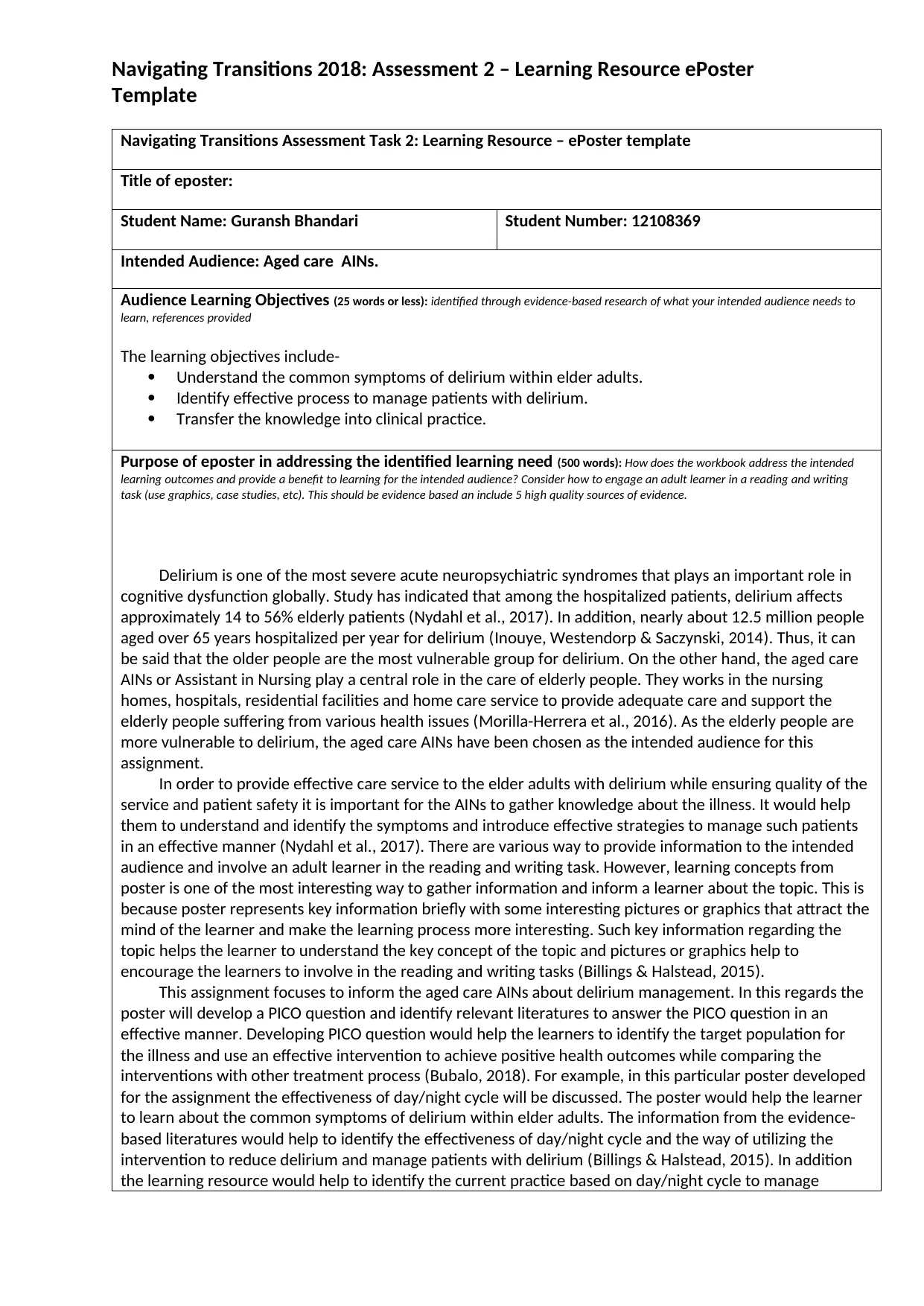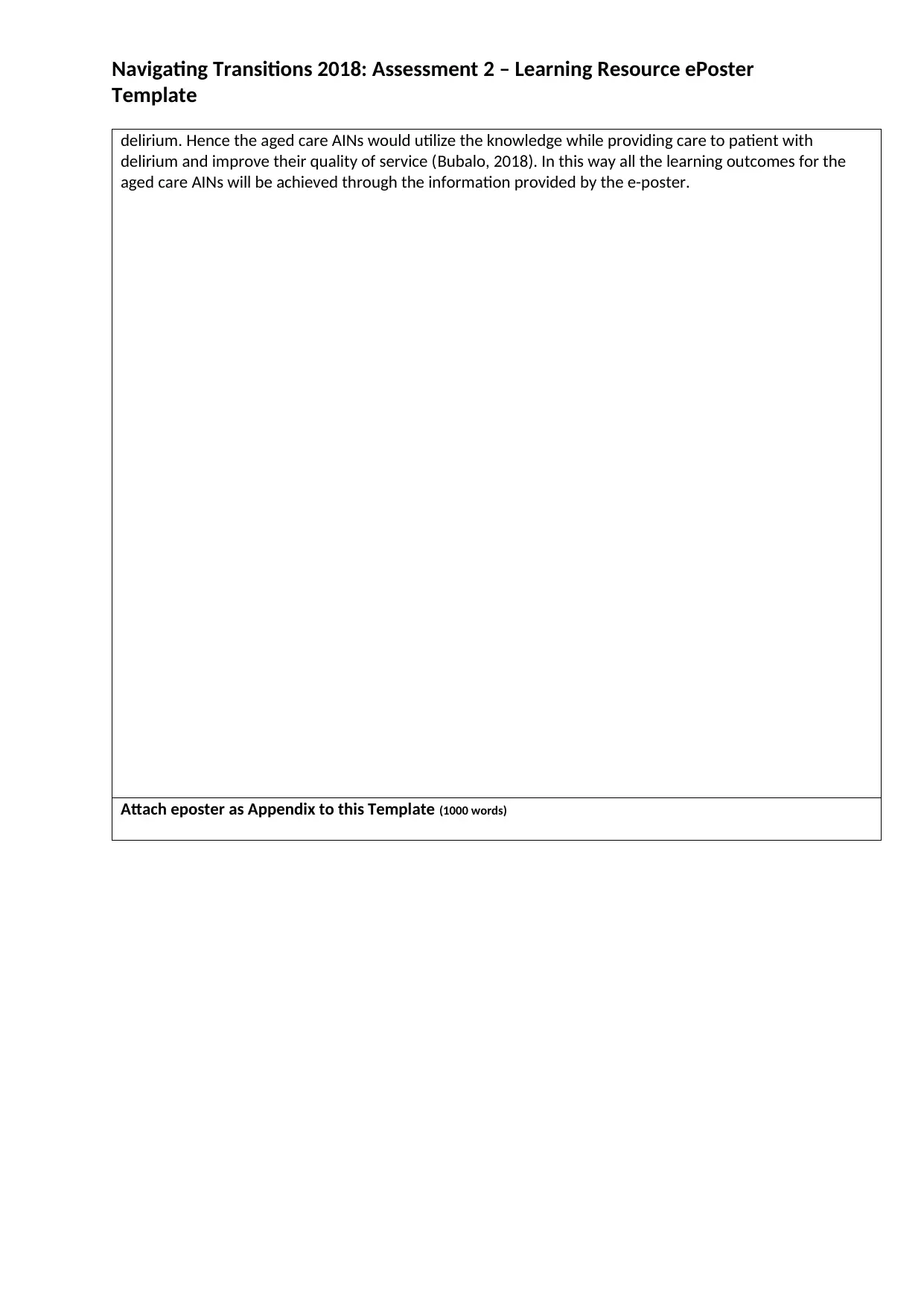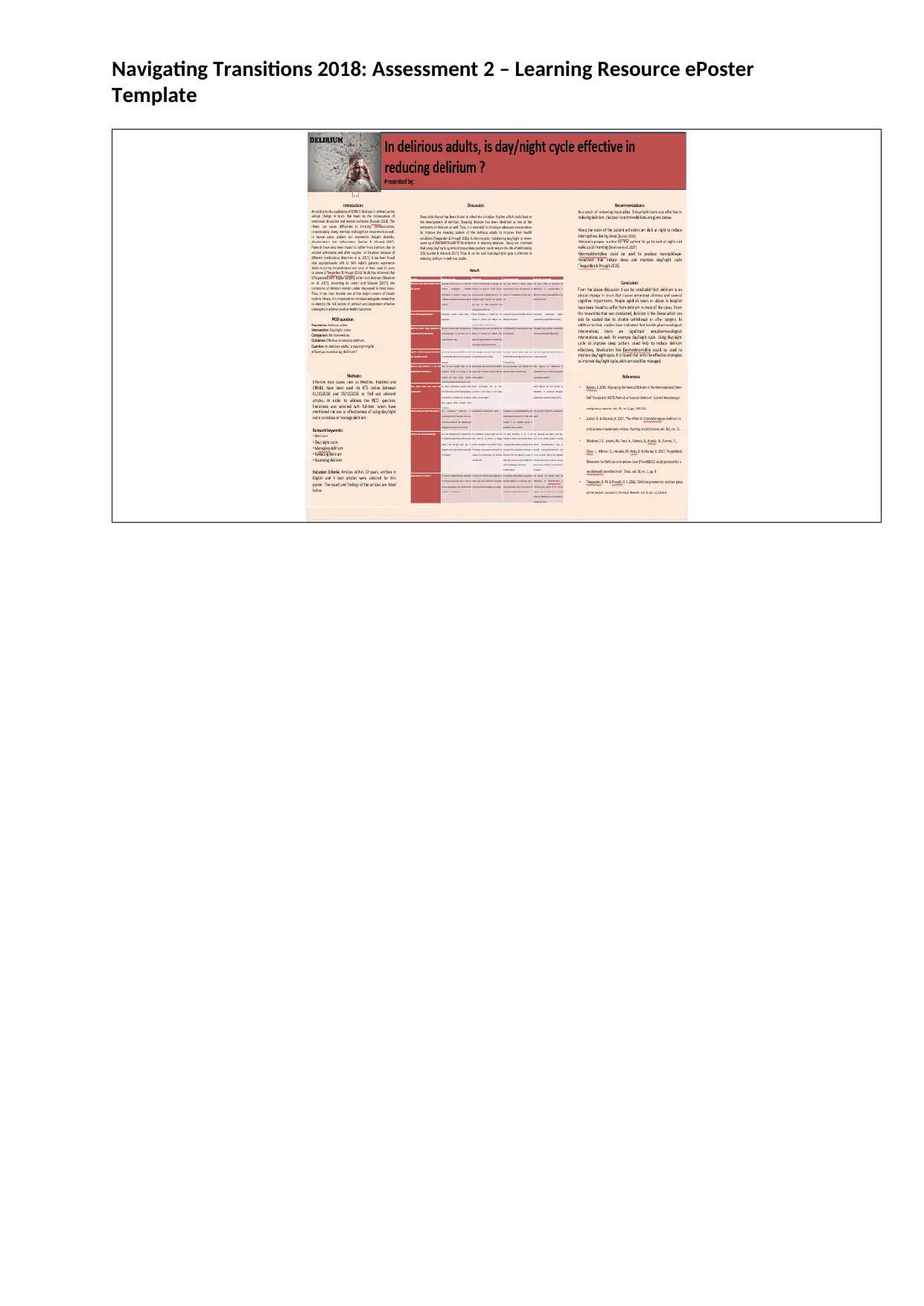Delirium Management: Learning Resource ePoster for Aged Care AINs
VerifiedAdded on 2023/06/04
|3
|1012
|347
Practical Assignment
AI Summary
This assignment is a learning resource in the form of an ePoster designed for Aged Care Assistants in Nursing (AINs) focusing on delirium management. The ePoster aims to educate AINs on the symptoms of delirium in elderly adults and effective management processes, with the goal of improving their clinical practice. The ePoster addresses the learning need by presenting key information concisely with graphics and case studies to engage adult learners. It develops a PICO question to identify the target population and relevant interventions, such as the day/night cycle, based on evidence-based literature. The ePoster is structured to help AINs understand delirium symptoms, utilize effective interventions, and improve their quality of service by applying the learned knowledge in their daily care of patients with delirium. The resource includes references to support its evidence-based approach.
1 out of 3








![[object Object]](/_next/static/media/star-bottom.7253800d.svg)